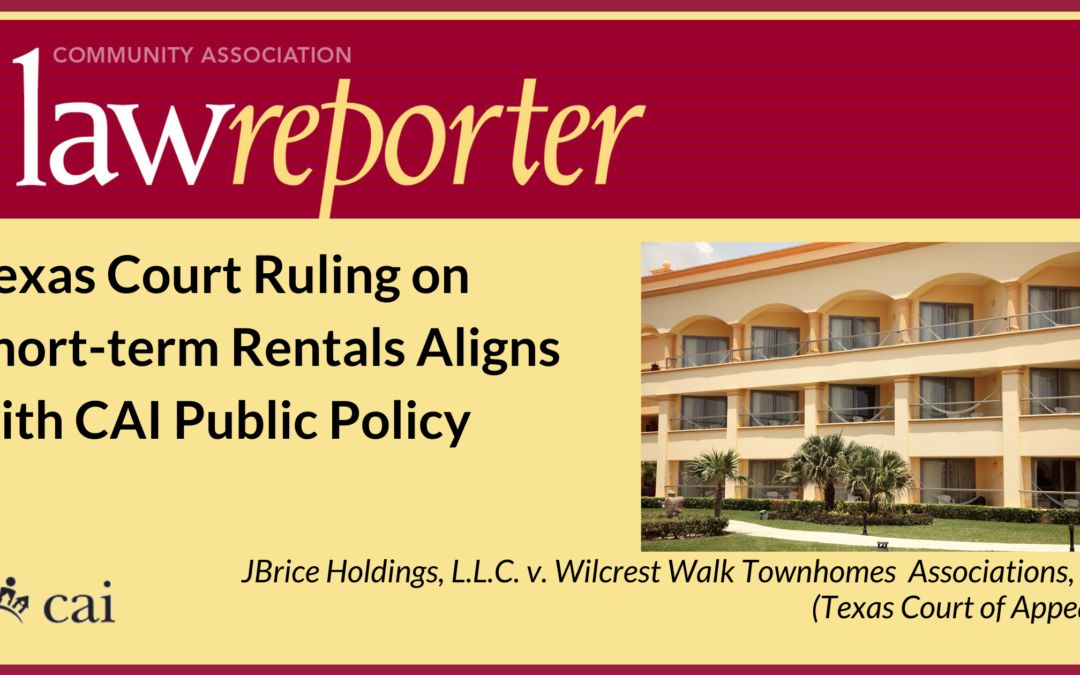In August, the Texas Court of Appeals ruled that state statute allows for a community association to adopt rules prohibiting short-term rentals.
In this case (JBrice Holdings, L.L.C. v. Wilcrest Walk Townhomes Associations, Inc.), a two-unit owner in a community association located in Houston rented their units for periods of one to 10 days through the online rental platform Airbnb. The association’s declaration of covenants, conditions, and restrictions included a single-family residential use restriction. The association notified the owner on two separate occasions that the rentals were a violation.
The unit owner sued the association arguing that the governing document’s single-family residential use restriction did not limit the time length of rentals. The association then countersued, and their board of directors adopted a rule prohibiting the use of a unit for a hotel, motel, or transient use.
The trial court held that the association had the power to adopt rules concerning rentals and their newly adopted short-term leasing rule was enforceable. The Texas Court of Appeals affirmed this ruling finding that the association’s declaration allowed the adoption of this rental regulation and that the Texas statute established that a community association had these powers.
This ruling aligns with CAI’s short-term rental public policy, which supports short-term rental regulation that is consistent with the association’s governing documents, federal, state, and local law. Regulations should protect and preserve the ability of community association homeowners to manage their affairs.
CAI opposes government regulations that intrude upon community association boards’ autonomy to serve the best interest of the community. Short-term rental regulation should not impair association contractual covenants and take decision-making authority away from homeowners. This degrades the very core of community association governance, which is based on private contractual obligations with homeowners.
The Texas ruling on short-term rentals was highlighted in the September issue of CAI’s Community Association Law Reporter, a monthly, members-only newsletter that provides a brief review of important court decisions impacting community associations throughout the U.S. Cases deal with developer liability, powers of the association, use restrictions, covenant enforcement, assessment collection, and much more.
In addition, CAI’s College of Community Association Lawyers prepares a case law update annually. The database includes summaries of these cases, along with their references, case numbers, dates, and other data.
Read the Kentucky Court of Appeals’ ruling on short-term rentals that I highlighted earlier this year here.



